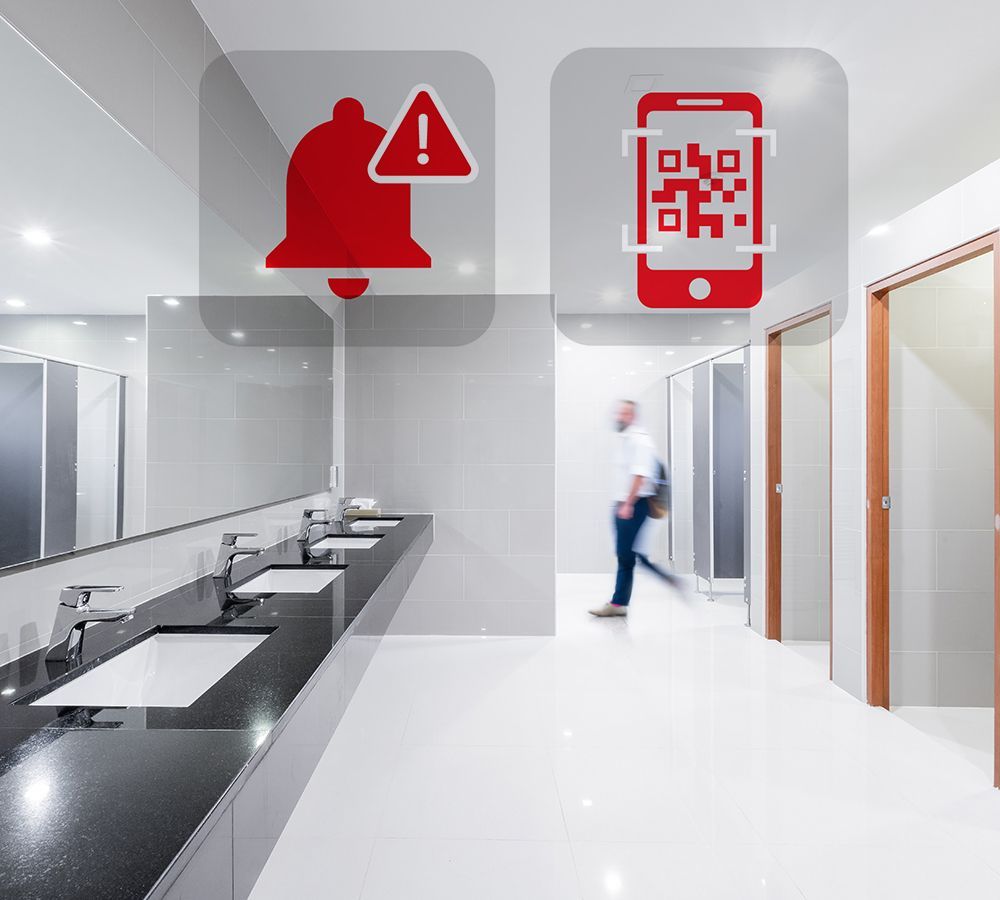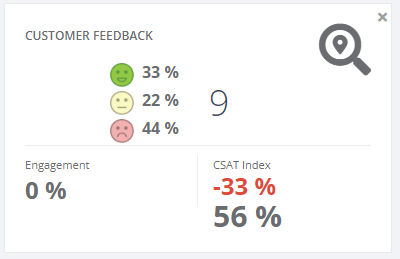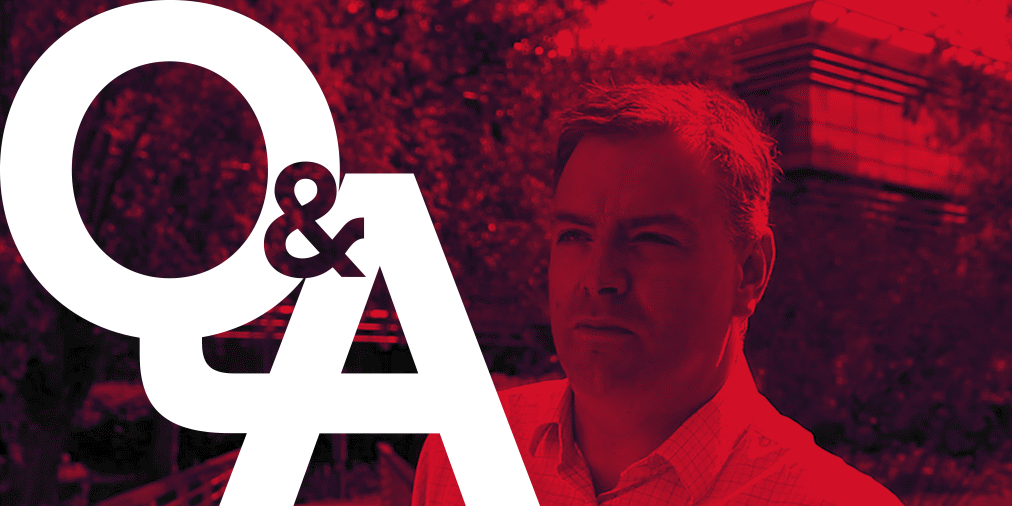Spotlight interview: Mark Hazelwood
Clenetix • 18 December 2020

A deep dive into all things cleaning and FM with Mark Hazelwood, Clenetix's co-founder.
I’ve been in the FM industry for almost 30 years. I was intending to join the police force and whilst I was at university studying, I got a job at property management company part-time to cover my going out money. I had the attitude of ‘yes, I can do that’, so it turned into a hugely varied role doing things from transformation projects to supplier reviews. Even at this stage I turned to technology to try and work smarter and not harder. I also started to like the idea of being in a warm office so I didn’t pursue a career in the police force in the end.
I went on to join, what was then a division of OCS, in an operations role where I managed a team of engineers, followed by 16 years at Mitie in eight different roles. I started there running a very large cleaning contract for Pfizer in Sandwich. I’ve always used technology in my operational roles and it’s really key to have somebody that knows the business function introducing the technology. I developed technology for multiple projects including Miworld, 24seven, initiatives that won Global FM, BIFM and Contact Centre Awards. I then had a short spell at Atalian Servest before moving on to set up Active Workspace Management and then Clenetix to really use what I have to offer when it comes to technology.
What have been the main changes in the cleaning industry during your career?
Cleaning has definitely become more of a commodity. People only want to pay for the hours worked and there was traditionally a lot of distrust of the industry that drove technology like time and attendance tracking. I still think there is a perception that operatives and middle managers don’t have the skills to use technology, but this is such an outdated view.
I’ve seen a lot of talk over the years about innovation, robotics, microfibre, dosing systems etc, but I am not at all sure this isn’t just to avoid talking about the importance of the fundamentals. These technologies are introduced with the aim of elevating the profile of cleaning because people don’t want to talk about mops and buckets. Actually, we should be more confident in the baseline services we all know and need. Technology and innovation should never be an add on, it should be embedded in the culture of an operation for it to be truly successful. Just needs to be ‘how we do things around here’.
In M&E there’s been a lot of talk about relating welfare and safety in the workplace to activity, this rarely happens in cleaning which frustrates me. Cleaning is just as important if not more so, particularly during the Covid pandemic.
What’s your favourite thing about working in the FM/cleaning industry?
In FM people are grounded and just want to get the job done. If you are facing a crisis, you’d want to be with someone in FM because you know they’d just roll their sleeves up, muck in and get on with it. Collaboration, team spirit and the drive to move forwards is so prevalent in the FM industry.
I love the cleaning sector in particular. In fact, I have a real bee in my bonnet about it. I think there’s still quite a patronising view of cleaning and at times it’s seen as the lesser discipline within FM but that’s so unfounded. In one of my roles I was employed as an account manager purely because the client didn’t want to speak directly to a ‘cleaning person’ which is ludicrous. It was in this role that I realised the complexity and significance of the cleaning industry, how good the people were and how little credit they got. There is so much diversity and professionalism in personnel in the cleaning industry and they know their game, inside and out.
Do you think people’s perception of the role a cleaner plays will change as a result of the pandemic?
Cleaning has certainly been put under the spotlight this year. I think perception has changed but there’s a concern that this could be short-lived. Now a vaccine is starting to be rolled out there’s a risk that people will become less aware and think they are bullet proof. There’s a real risk that the cleaning commodity cycle begins again and we forget COVID ever happened.
What positive things do you think we can take into the post-pandemic world?
The increased attention to hygiene levels can only be a good thing. This will continue into 2021 and beyond. People have so much more awareness about when things were last cleaned now, things that we’d never have thought of before. Cleaning has become a board level focus and this is where it should stay. The connection between welfare and FM services is much stronger.
Collaboration among cleaning and other service lines as well as HR and IT departments is undoubtedly strengthened. Whether this is a revolution or a reaction is yet to be evidenced but I would like to think it’s the former. We’re moving into an age of building better and this is always stronger together.
There’s more growth mindset in play now and this year has demanded that to ensure survival. It’s been a case of companies either panicking or innovating themselves out of the crisis.
What do you think companies should be doing to ensure the safe return of their workforce?
All employers, large or small, must ensure they implement cleaning methodology that is suitable for their specific building(s) to be occupied at an appropriate level. Cleaning regimes need to be demand-based, documented and evidenced for people to not only feel safe, but be safe. Cleaning is a very visual aid to supporting wellbeing. The office will be a very frightening place for some people to return to and employers need to demonstrate that they are taking wellbeing seriously. This is not about talking the talk and displaying a few Covid-safe posters and a leaky bottle of hand sanitiser. Employers need to walk the walk and do so minute-by-minute.
What do you think are the biggest challenges faced by the cleaning industry?
Commoditisation. Cleaning is not perceived to add any value. It’s at the forefront of cost cutting exercises and left at the mercy of procurement teams. As an industry we need to demonstrate value and confidence in our services to be recognised and positioned higher up the rankings. Re-education of procurement teams also needs to come into the mix. The cleaning industry needs to become much less subservient.
Associations like the British Institute of Cleaning Science (BICs) are not nearly vocal enough. Who is shouting from the roof tops on behalf of the cleaning industry? Why have we not been seeing cleaning or FM professionals on the 6 ‘o clock news at any time during the pandemic when FM is the very discipline that’s underpinned the safe opening and closing of every business during this time? BICs and IWFM need to raise the FM profile publicly, not just support people within the industry.
The cleaning industry will be hugely impacted by Brexit. We have a large pool of European labour currently and the industry will need to work harder at making the profession more enticing. This comes with elevating the profile and making it an attractive choice.
Cleaners have a larger responsibility for wellbeing now and this needs to be remunerated accordingly. Companies should be paying at least the Living Wage for their cleaners. This goes some way in demonstrating that they value the service.
How can cleaning be transformed through technology?
In order for the industry to transform, tech and innovation must be embedded in the culture of cleaning. It should not be the cherry on the cake, it needs to be a key ingredient in the cake mixture itself. Just as Deliveroo cannot do its job without technology, that is how integrated technology needs to be in cleaning. An IT person should not be brought to sales meetings to bolt on the latest gadgets. Innovation should not just be something that is a carrot dangled at retender either. Every FM needs to have their finger on the technology pulse.
Any technology integration should add benefit to the customer and be easily be deployed. So many times, I’ve seen IT systems being deployed that actually make life more difficult. They’re totally wrong for the environment and people don’t know how to use them. Style over substance never wins. It’s all about the user experience. I’m really motivated by developing new technology that adds real value and that is what Clenetix is about. Good use of technology that makes life easier, provides data to improve service delivery and helps demonstrate cleaning professionalism.
What’s your advice to someone starting out in the cleaning industry?
Networking is a must! Sometimes you can be so obsessed with what you’re doing in your day job that you don’t see the wider picture that we’re all part of. Every generation in the cleaning industry has valuable knowledge and experience to offer. Talk to everyone, young, old and in-between – they know their stuff.
Think outside the box and be open minded. Look at what other industries are doing and get creative with how that could benefit the cleaning industry. I’m thinking about the Deliveroo and Just Eat models. A cleaning version that showcased a pool of available, security cleared, BICs registered and trained cleaning talent that companies could dip into would be revolutionary. It would professionalise the cleaning function, give cleaners more flexibility to pick up more hours and contract cleaning companies would have a readily available recruitment resource. The right skills are hard to find and recruitment is tough. Turnover can be huge in cleaning.
What’s your vision for the future of the cleaning industry?
Cleaning needs to be much higher up the value chain. I’m really passionate about the industry elevating itself. It’s a fantastic, essential industry and it needs a louder voice. We need to make our own voice. We have to turn what we do into communicating the importance of what we do. We are too insular and it’s time to come out of the shadows – the pandemic has accelerated this visibility so we need to keep those cogs turning.

The Clenetix mobile app is an innovative solution designed to improve cleaning routines through a sleek and user-friendly interface. It streamlines the documentation of cleaning activities while offering a range of valuable features. Key functionalities of the Clenetix app include Time & Attendance tracking, Task Management, and Quality Auditing. Users can also access an interactive Knowledge Base and review Activity & Notification logs, providing a comprehensive understanding of their workspace's status and interactions. The application leverages Bluetooth beacons and QR codes to confirm the successful completion of various activities, including time and attendance tracking, task execution, and quality audits. This technology ensures that results are accurately documented and that activities are conducted at the designated locations. All collected data is accessible via the Insights Portal, which provides a real-time overview of ongoing and completed activities, durations, and consumables used. Users can configure the portal to send cleaning instructions through push notifications directly to cleaning staff's smartphones when capacity limits are reached or service issues arise. This data-driven approach enables the analysis of cleaning schedules, enhances operational efficiency, improves functional accuracy, optimizes consumables management, and identifies opportunities for cost savings and service enhancements. Get ready to showcase your cleaning capability like never before!

These two contract wins are a testament to Clenetix's commitment to providing innovative and effective cleaning technology solutions that help businesses of all sizes operate more efficiently and deliver exceptional service. We look forward to continuing to work with these businesses into and beyond 2024. If you need an innovative cleaning software provider, please reach out to Clenetix.

Cleaning software specialist Clenetix has introduced two new features for its modular software-as-a-service (SaaS) solution. The Alerts feature has been introduced to give automated, proactive insight into day-to-day cleaning operations, and QR codes offer additional deployment options to customers.

A forward thinking FM company in the middle east has appointed cleaning software specialist, Clenetix, to provide a full complement of services including task and quality, indoor air quality (IAQ) and footfall monitoring. Clenetix’s services have been deployed at one of the biggest infrastructure projects currently underway in the region on a rolling contract. Following a successful deployment at two initial sites the specialist software is expected to be rolled out across other sites over coming months and years. Clenetix was appointed because the cleaning management software was cost effective and simple to deploy without the need for the Clenetix team to visit the sites. Clenetix clearly demonstrates cleaning is delivered to quality standards whilst eliminating time consuming reporting. The software as a service from Clenetix also identify trends in usage of these remote sites, increasing productivity buy targeting cleaning schedules when most needed. Peter Stock, co-founder and director at Clenetix says: “We are thrilled to be working in the middle east providing added value to the service provided by our customer for a major client. The end client embraces smart city technologies which at the heart of the Clenetix service. Data driven services leads to saving time and making cleaning processes more efficient with complete transparency is what our software is all about. Clenetix will help achieve significant efficiencies and improve service delivery.” -ends- About Clenetix Clenetix is a software-as-a-service (SaaS) solution designed especially for the cleaning industry. Delivered via mobile application, the modular solution enables time & attendance monitoring, activity tracking, task list management, quality audit management and footfall tracking. Clenetix Last Cleaned gives users up to date information about when a location was last cleaned. www.clenetix.com

The workplace has been changing for many years and the pandemic has only increased the focus on the “future of the office”. Technology has always been a key indicator of that change and a survey from McKinsey found COVID-19 has sped up the adoption of digital technologies by several years. While not surprising, it will be interesting to see which of those technologies are here to stay. With so many organisations investing in digitisation and embracing a hybrid approach to work, it can be tempting to jump on the bandwagon of the newest, shiniest solutions. This will be exacerbated by the change in outlook that the pandemic has brought. After more than a year of being so health-conscious, employees will want to return to workplaces that are obviously clean and well-maintained. Having expensive technology on-show is an easy way for employers to demonstrate that they care about their workplace. But it isn’t always a worthwhile investment. What to look for in great technology As we move out of the pandemic, organisations must take a step back to reflect on what they are trying to achieve. Building managers should understand how their offices will be used and tailor the technology accordingly. In sites that are primarily hosting clients, for example, active visitor management systems will be important, of course, but managers must think beyond this. From the moment a potential client enters a building, they will build an impression of the organisation. The finest details – from the tidiness and presentation of reception to the way they are greeted at the door – make a difference. Interconnected technology should be used to cross operational silos. Meeting rooms might need to be cleaned, tidied, and checked between each use so cleaning staff need to be aware of site schedules. Management systems may be used to remind staff to turn the heating or air conditioning on in a room in advance – or automate the process - to ensure the client is comfortable. The key, when looking to invest in technology, is to ensure it serves your business. Centralised systems Client sites must become more proactive in response to the pandemic. Cleaning services, for example, should be designed to cater to changing workplace occupancy levels throughout the week. This can easily be done by connecting cleaning workflow technology to workstation booking systems or occupancy sensors and collecting relevant data on usage. Cleaning workflows can also be tracked and centralised to improve transparency and accountability. In a time when health and safety is at the forefront of everyone’s minds, such systems are more important than ever. While the return to the office is unlikely to be as sudden as the exodus from it, numerous changes are being implemented, and employers should be aware of their responsibilities and the concerns of their staff. There are numerous technologies which can help alleviate those fears and keep staff safe. People have to be central to decisions around which technologies to implement and how solutions are deployed.

Q3 Services Group Ltd (Q3) has appointed cleaning software specialist, Clenetix, to provide ‘check in/out’ time and attendance monitoring for a national logistics company client. Clenetix’s time and attendance monitoring has been deployed at one of the logistics giant’s distribution centres on a rolling contract with Q3. The specialist software is expected to be rolled out across other sites over coming months. Clenetix was appointed because the cleaning management software was cost effective and simple to deploy, and clearly demonstrates cleaning hours delivered whilst eliminating time consuming admin. The software as a service from Clenetix also eliminates bottlenecks in the distribution centre as cleaning staff arrive at entry points making it a much more Covid-secure process. Cleaning operatives can immediately start their shift without clocking in/out, increasing productivity. Q3’s deployment of Clenetix at this national logistics company follows implementation across a number of other accounts in the retail and legal services sectors. Q3 Services Group Ltd is a boutique FM company delivering quality cleaning, maintenance and engineering, waste and environmental, onboarding, catering, security, technology and landscaping services. Mark Hazelwood, co-founder and director at Clenetix says: “We are thrilled to be working with Q3 Facilities Management providing added value to the cleaning service for their logistics client. Distribution centres are so data centric and process driven. Fact really matters and every second counts. Clenetix complements this. Saving time and making Q3’s cleaning processes more efficient with complete transparency is what our software is all about. Clenetix will help Q3 achieve significant efficiencies and improve service delivery.” Alex Gavrilovic, Solutions Director from Q3 adds: “In a period of great transformation and transition FM needs to work smarter. We’re all about redefining the FM experience and Clenetix supports us in that mission. Deploying Clenetix with our national logistics client has quickly streamlined our attendance processes, increased productivity and saved time. Technology is part of our organisation’s continuous improvement and we are pleased to be working in partnership with Clenetix to elevate our FM model.” -ends- About Clenetix Clenetix is a software-as-a-service (SaaS) solution designed especially for the cleaning industry. Delivered via mobile application, the modular solution enables time & attendance monitoring, activity tracking, task list management, quality audit management and footfall tracking. Clenetix Last Cleaned gives users up to date information about when a location was last cleaned. www.clenetix.com Media contact Sabrina Stubbs Magenta Associates Office: +44 (0)1273 934295 Mobile: +44 (0) 7743056320 Email: sabrina@magentaassociates.co About Q3 Services Group Ltd Q3 Services is a boutique FM company, with offices in the UK and Channel Islands that is changing the way clients benefit from outsourced services. We work with our partners to deliver quality cleaning, maintenance and engineering, waste and environmental, onboarding, catering, security, technology and landscaping services. We employ quality people and engage with quality clients. Entrepreneurial in spirit, Q3 has three main objectives: to boost productivity through healthier workplaces, to be open and transparent with all stakeholders and to transform the working environment for our own employees. Q3 Services Group Limited 1650 Waterside Drive, Arlington Business Park, Theale, Berkshire, RG7 4SA Website: www.q3services.co.uk Follow us on LinkedIn or Twitter Q3 Services Group Limited Registered Office: 7/8 Innovation Place, Douglas Drive, Godalming, Surrey, GU7 1JX Company Number. 11143750

Cleaning software specialist, Clenetix, launches cutting-edge software that provides ‘track and trace’ cleaning and air quality monitoring. The plug-and-play software supports Covid-secure cleaning operations and air quality ensuring they are fit for the needs of the location and footfall. The modular platform provides time and attendance monitoring, activity tracking, task list management, quality audit management and footfall tracking - this enables demand-based cleaning so cleaners can focus on the areas with highest traffic and increased risk of Covid transmission. The Clenetix app is deployed on cleaners’ smartphones and is configured to deliver specific cleaning instructions tailored to the location, whether that’s a hotel, bar, restaurant or event space, ensuring nothing is missed and the highest level of hygiene standards are maintained. The entire process is recorded so venue owners and managers can see a comprehensive record of exactly what was cleaned, and when. Clenetix’s ‘Last Cleaned’ functionality gives customers up to date information about when a location was last serviced by scanning a QR code on their smartphone. This level of transparency allows venues to demonstrate their commitment to cleanliness and increase confidence among its users. In partnership with Airthings for Business, the software’s air quality monitoring solution allows users to see live data about when there is virus risk in the air. The air quality monitoring module also gives owners and managers access to live air quality data about CO2, temperature, humidity, airborne chemicals, radon, light, occupancy, mould risk and air pressure levels. By understanding what is in the air, venue operators can make more intelligent decisions about improving ventilation and building maintenance to create a safer and healthier environment for staff and customers. The Insights Portal delivers valuable tips about how to reduce indoor air hazards, and floorplans can be uploaded for a visual overview of the air in buildings. Clenetix is a plug-and-play solution and sensors, that ‘talk’ to the mobile app, can be set up as part of a simple installation, without the need for any cabling or invasive installation. No disruption is caused to busy hospitality and leisure locations. As hospitality businesses open their doors over the coming months, Clenetix’s ability to track cleaning and monitor air quality will transform hygiene operations and elevate safety standards. The Clenetix Insights Portal provides transparent real-time data so hospitality and leisure venues can continue to operate with total assurance and peace of mind. Mark Hazelwood, director and co-founder, Clenetix said: “Many hospitality and leisure venues have been closed for so long and as much as there’s huge appetite to open, this also comes with increased risk and pressures of maintaining strict hygiene standards. The industry continues to face more tumult in the coming months. “Customers now have a heightened awareness of hygiene that is here to stay. Just because an area is free from dirt and grime, it does not mean it is sanitised and safe. Customers will be looking for evidence of cleaning measures and venues will need to be confident they can provide a safe environment and be able to demonstrate this. With hospitality and leisure venues receiving a high footfall, data-driven cleaning procedures and robust, Covid-secure measures have to be at the forefront as the sector relaunches itself.” --ends- About Clenetix Clenetix is a software-as-a-service (SaaS) solution designed especially for the cleaning industry. Delivered via mobile application, the modular solution enables time & attendance monitoring, activity tracking, task list management, quality audit management and footfall tracking. Clenetix Last Cleaned gives users up to date information about when a location was last cleaned. www.clenetix.com Media contact Sabrina Stubbs Magenta Associates Office: +44 (0)1273 934295 Mobile: +44 (0) 7743056320 Email: sabrina@magentaassociates.co





